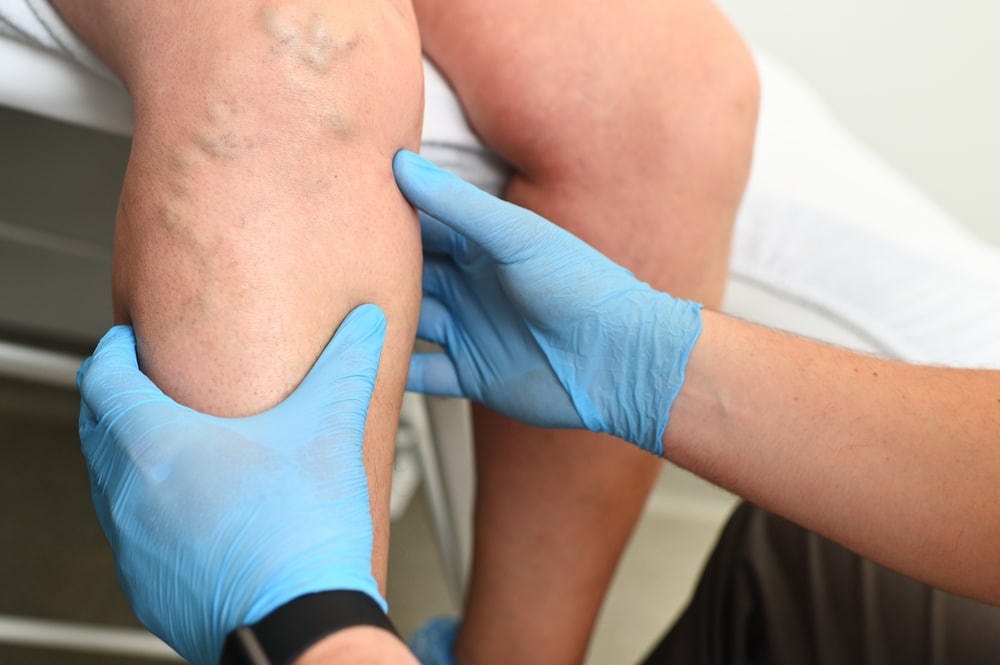Dr. Alexea Gaffney-Adams, who was diagnosed with stage three breast cancer in April 2018, underwent a double mastectomy to eliminate both breasts. While she is now a breast cancer survivor, like many others who endure similar treatments, she continues to live with persistent reminders of her ordeal.
Each day, she experiences some level of discomfort. Her right arm and hand are frequently swollen, with occasional instances of extreme swelling. The accumulation of fluid restricts her arms’ mobility, leaving her skin feeling perpetually tight and itchy.
Dr. Gaffney-Adams suffers from lymphedema, a long-term condition that can lead to significant swelling, most often in the limbs. This affliction impacts approximately 20-30% of women diagnosed with breast cancer—yet many remain unaware of it during their treatment journey.
Understanding lymphedema and its prevalence among breast cancer patients
In the course of her breast cancer treatment, Dr. Gaffney-Adams had 15 lymph nodes excised from her right side and three from her left. The removal of these lymph nodes triggered the onset of lymphedema, along with the associated pain and swelling.
“The lymphatic system functions like the body’s sewage system,” remarks Joseph Dayan, MD, a board-certified plastic surgeon who focuses on lymphedema. “It is responsible for draining fluid waste, which naturally results from metabolism, from the arms and legs and all surrounding tissues before returning it to the bloodstream.”
Lymph nodes play a critical role by purifying and filtering waste within the body, according to Dr. Dayan. When lymph nodes are surgically removed during breast cancer treatment, it creates a blockage, preventing waste from being properly drained. Consequently, fluid accumulates at the site of obstruction, leading to symptoms similar to those experienced by Dr. Gaffney-Adams
During a mastectomy, physicians often excise lymph nodes to determine if cancer has metastasized. While not everyone who has lymph nodes removed will develop lymphedema, the frequency of this procedure in breast cancer treatments accounts for the high number of women affected by this condition.
Lymphedema can catch women off guard
“When a person is diagnosed with breast cancer, the immediate concern is survival,” Dr. Dayan emphasizes. “Managing lymphedema tends to take a back seat, often overshadowed in initial consultations.”
“I was so preoccupied with the news of needing chemotherapy again that I didn’t fully absorb my doctor’s indication that I should also consult a lymphedema therapist as a precaution,” shares Marianne DuQuette.
Cuozzo, a three-time cancer survivor who underwent a double mastectomy in 2014, reflects on her journey: “My focus was on my breasts being amputated, losing my hair and going through chemo.”
Dr. Gaffney-Adams acknowledges that lymphedema was not a primary concern during her treatment. She recalls that her surgeon merely touched upon the subject during a consultation. “I believe it warranted more than just a brief mention in the discussion,” she states. Unbeknownst to her, she was unaware of the significant number of women who develop lymphedema and that Black women are at an increased risk for this condition.
According to Dr. Dayan, lymphedema may not manifest immediately, which makes it easier for it to be overlooked. Symptoms can surface anywhere from 18 to 24 months post-surgery. He further notes that historically, there has been a lack of proper training for medical professionals in managing lymphedema.
Lymphedema as a Continuous Reminder of Breast Cancer
Dr. Dayan emphasizes that “many of our patients are more emotional about their lymphedema than their breast cancer.” He explains, “In most cases, the treatment for breast cancer concludes at some point; however, once lymphedema sets in, it becomes a never-ending challenge and serves as a somber reminder of their breast cancer experience.”
DuQuette Cuozzo shares her struggles with early lymphedema treatments, which led her into a downward spiral. As a decorative artist, she found herself unable to work, and the compression garments necessary for her condition didn’t align with her personal style. “It put me in a dark place,” she recounts. “I had no desire to go out or socialize.” Fortunately, she has since discovered stylish compression sleeves from LympheDIVAs that make her feel more like herself, enabling her to use her artistic talent to design items for the company.
Dr. Dayan mentions cases where patients had to forgo activities they loved, like golfing or going to the beach, as physical exertion aggravated their lymphedema. The challenge of finding clothing that accommodates swollen limbs can also negatively impact self-esteem.
Dr. Gaffney-Adams wishes for greater public awareness regarding the condition. “It’s permanent and necessitates ongoing treatment,” she admits.
As with any illness, early detection is crucial. If you or someone you know is diagnosed with breast cancer, inquire with the surgeon about the potential risk of lymphedema and familiarize yourself with the symptoms to monitor. Although lymphedema can be a persistent condition, symptoms can be effectively managed through various treatments, including compression machines, lymphatic drainage massages, and compression garments.
Image Source: Evgeniy Kalinovskiy / Shutterstock



































